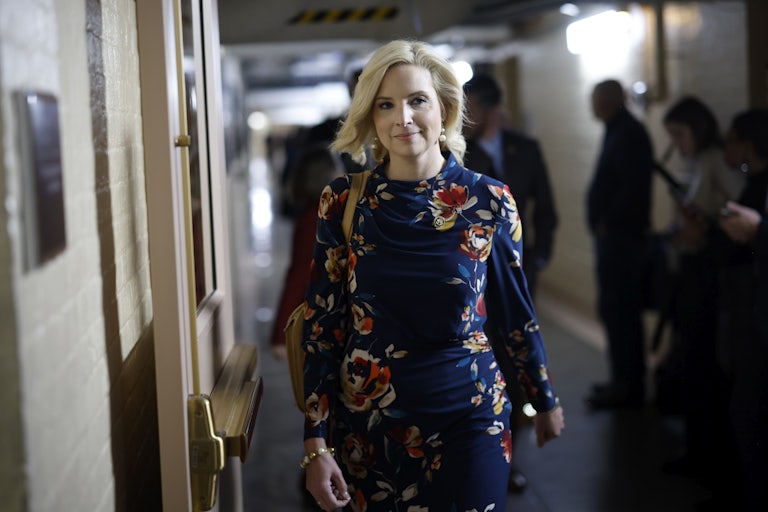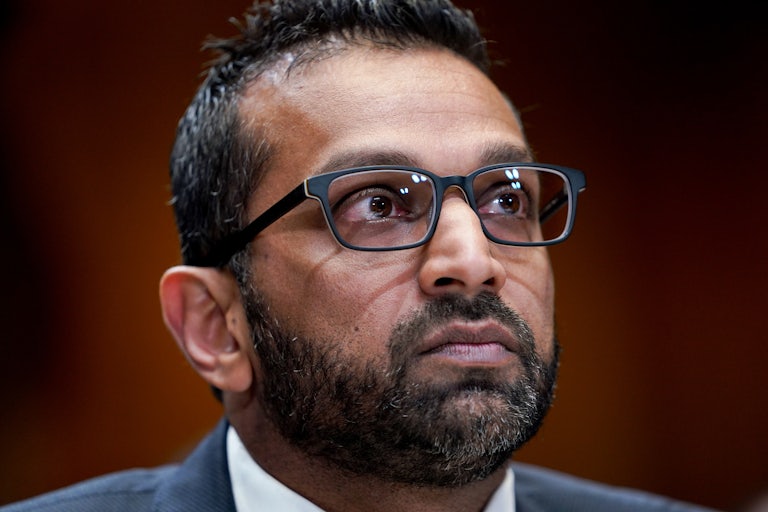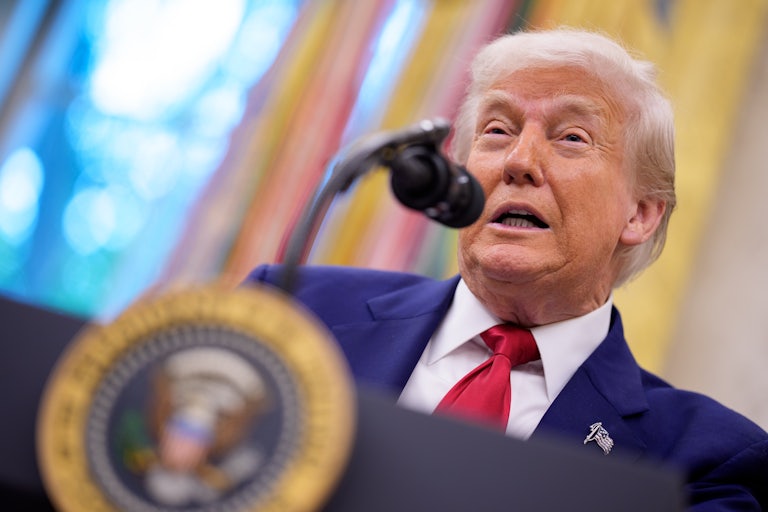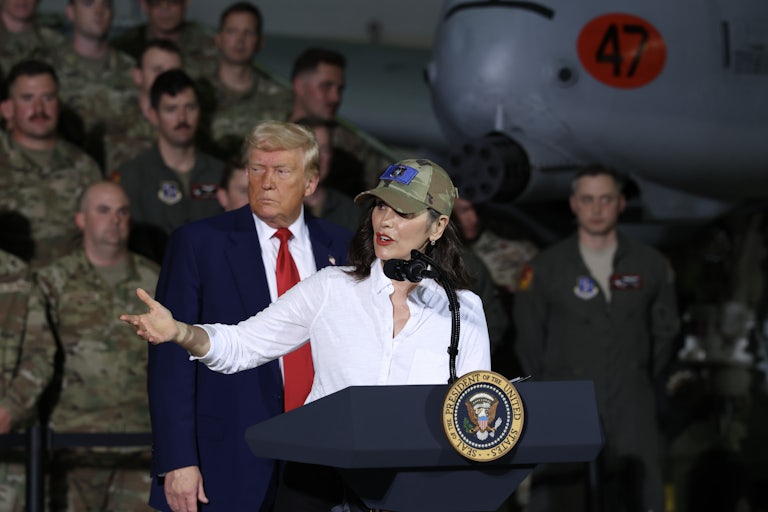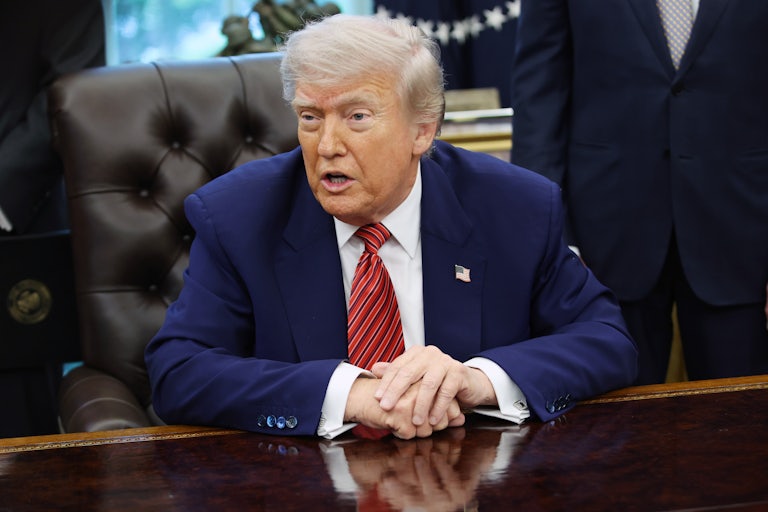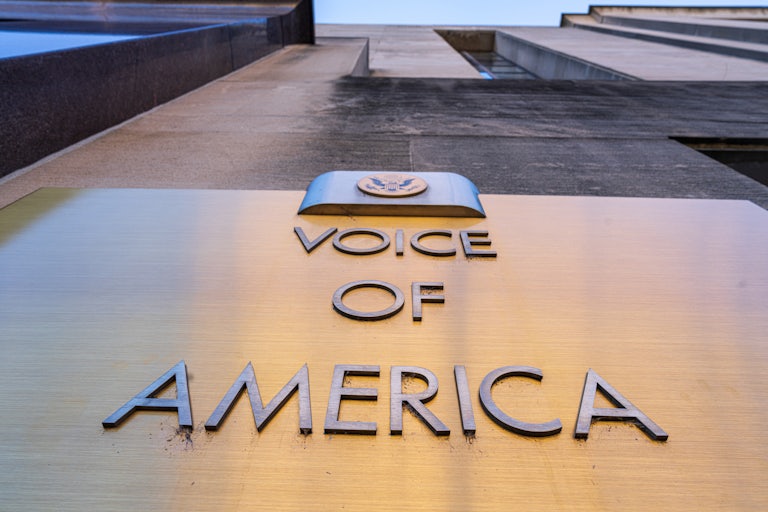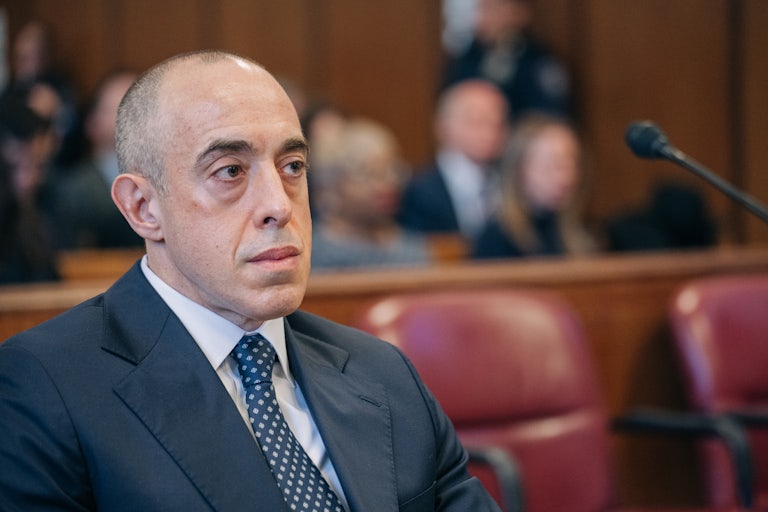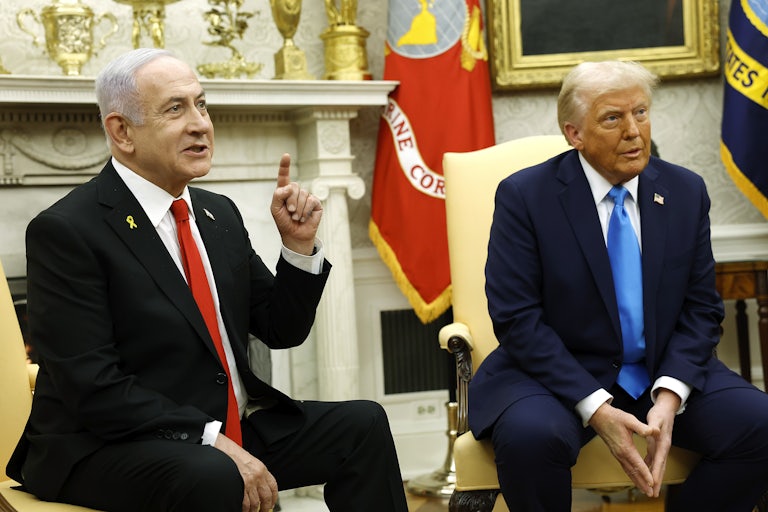Elon Musk Tried to Sabotage a Trump Deal With a Rival Company
Elon Musk blatantly used his proximity to Donald Trump to boost his own businesses.
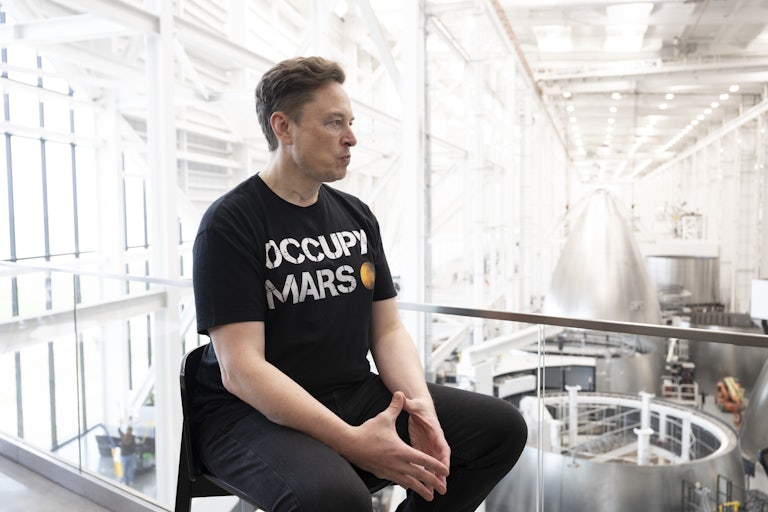
Elon Musk’s proximity to Donald Trump offered him unparalleled influence on the U.S. president—influence that he tried to weaponize.
The tech executive openly objected last month to a massive data-center deal in the works between OpenAI—one of Musk’s rival companies in the burgeoning field of artificial intelligence—and the United Arab Emirates, according to White House sources that spoke with The New York Times. He complained to Trump’s AI adviser David Sacks, protested the deal to other White House officials, and claimed that the arrangement shouldn’t go to OpenAI, citing fairness toward other AI companies.
Meanwhile, Musk tried to shoehorn his own AI company, xAI, into the deal, The Wall Street Journal reported Wednesday. He failed.
The problem arose when Musk learned that OpenAI CEO Sam Altman would be joining Trump on his tour of several Middle Eastern countries. News of the emerging deal made Musk angry, according to the Journal. So angry that he insisted on joining the trip, appearing beside the U.S. president in Saudi Arabia. Musk also threatened members of G42, an Emirati AI development firm controlled by the brother of UAE’s president, claiming that the deal would not move forward unless his company xAI was one of the startups involved.
Musk did manage to land himself a massive business deal during Trump’s trip. On the second day, Musk announced Saudi Arabia had approved the use of Starlink within the country.
Musk’s exit from the government has been swift and complicated as key players across Trumpworld turned against the world’s richest man. In the few short months that Musk ran DOGE, reports emerged that practically everyone in the White House hated him. He had stomped on the toes of Trump’s Cabinet, failing to consult them before paring down federal agencies technically under their control. Earlier this week, Musk whined that DOGE had become a “whipping boy” for the administration’s failures. He told CBS that Trump’s “big, beautiful bill” was actually a bad idea.
Musk was Trump’s top financial backer in the 2024 election, spending at least $250 million in the final months of the president’s campaign after Trump was shot in July. Musk had also promised to funnel funds toward other Republicans, declaring in the wake of the November election that his super PACs would “play a significant role in primaries.” In the following months, Musk threatened to use his money to fund primary challengers to Trump’s agenda and go after Democrats, and that he would be preparing “for the midterms and any intermediate elections, as well as looking at elections at the district attorney level.”
The week after Trump returned from the Middle East trip, however, Musk announced at the Qatar Economic Forum that he had “done enough” political spending.
“I think in terms of political spending, I’m going to do a lot less in the future,” Musk said.
